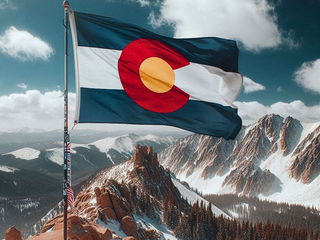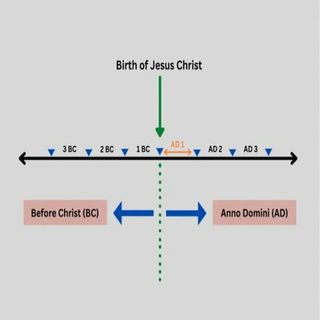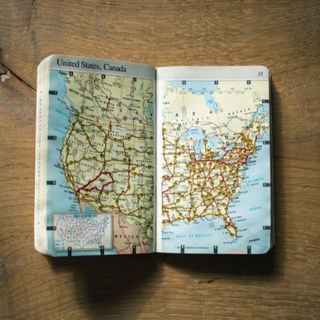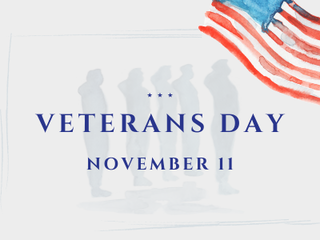- Calendar
- Calendar 2026
- June
- Korean War
Korean War
The Korean War started on June 25, 1950, when North Korea's army invaded South Korea. This was considered the first military strike of the Cold War. The war lasted from June 25, 1950, to July 27, 1953.
The United States joined the war in July, backing South Korea, in another effort in America's fight against the propagation of communism.
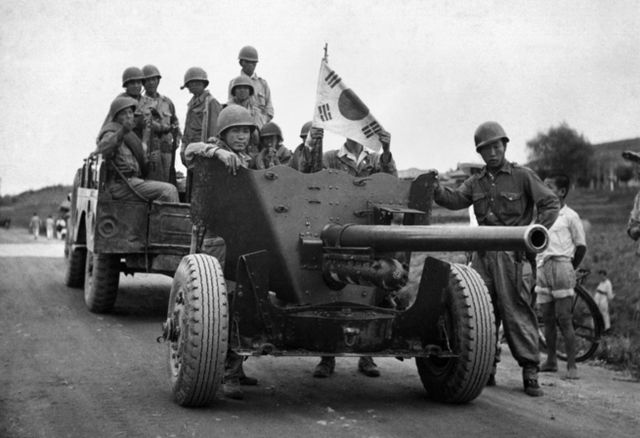
Korean War History
After the end of World War II, the territory of Korea, which had been in the hands of the Japanese, was handed to the United States and the Soviet Union.
They were in charge of deciding what to do with it. In 1945, the peninsula was divided in half (the 38th parallel) with the Americans taking possession of the area to the south, and the Russians occupying the north of the divide.
Eventually, two new states were formed in the peninsula. The South was ruled by anti-communist Syngman Rhee, who was supported by the US government. The north, on the other hand, was ruled by the communist dictator Kim Il Sung, who had the support of the Soviets. Both rulers wanted to go over the border in order to conquer the other side and take possession of the entire Korean peninsula.
On June 25, 1950, around 75,000 North Korean soldiers crossed the 38th parallel into South Korea. This gave rise to fear in the Americans who believed it to be the first step in communism taking over the world. The government never doubted that intervention from the United States Army would be necessary. For Americans, this was a war against communism and a symbol of the struggle between good and evil in the Cold War.
At first, the American army intervened with a defensive strategy in mind. Their only goal was to drive the communists out of South Korea. However, unlike the South Korean army, the North Korean army was well-armed and well-trained and quickly moved forward in their invasion. Thus, President Truman decided that the American intervention should become an offensive one, with the only purpose of liberating the North from communism.
However, as the American army gained territory in North Korea, the Chinese government feared that the American troops would go on to invade Chinese territory next. To prevent this, they sent their troops to back North Korea against the US army.
Peace Talks
Truman did not want this, as a war with China could prompt the Soviets to begin a war in Europe, causing unnecessary casualties. He promptly fired the generals who wanted to fight China.
In July, 1951, with new generals by his side, President Truman began peace talks with North Korea at Panmunjom. However, the implementation was delayed because there was a difference among the parties involved about whether the war prisoners should be released or not. While North Korea and China were in their favor, the United States disagreed.
Finally, after two years of negotiations, an armistice was signed on July 27, 1953, marking the end of the Korean War. All sides agreed to give South Korea 1,500 more square miles of territory near the 38th parallel, and a "demilitarized zone" was created on the border of the two countries.
Korean War Timeline
Korea is divided into North Korea and South Korea along the 38th parallel.
North Korean army invades South Korea, thus giving rise to the Korean War.
The United States joins the Korean War in support of South Korea against North Korea.
China also joins the Korean War in support of North Korea
An armistice was signed between the two countries and the Korean War finally came to an end.
Korean War Aftermath
Around five million people died in total including civilians. The United States Army lost 40,000 troops in the Korean War. Moreover, around 100,000 soldiers were injured badly.
The Korean War Veterans Memorial was built at the National Mall in Washington to honor those who fought in this war.
Korean War Interesting Facts
- An estimated 7800 American soldiers, as per a 2019 report, are still missing from the Korean War.
- Around 16 countries participated in the Korean War including Great Britain, Canada, France, Australia, Belgium, Ethiopia, Colombia, Greece, Thailand, South Africa, Turkey, Holland, Luxembourg, Philippines, and New Zealand.
- After the war was over, 21 captured American soldiers decided to stay back in China much to everyone’s shock.
- Renowned artist Pablo Picasso painted ‘Massacre in Korea’ in 1951. It showcases the mass murders carried out in Sinchon in North Korea.
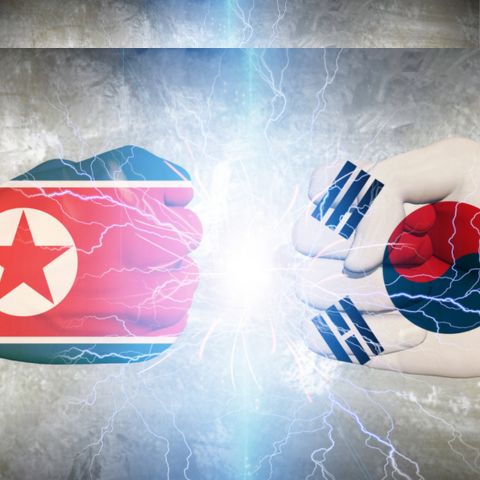
Other Celebrations
-
Jan 13 Mon
-
Feb 19 WedInternational Tug of War Day
-
Apr 09 WedNational Former Prisoner of War Recognition Day
-
Apr 12 Sat
-
Apr 21 Mon
-
Jul 28 MonWorld War I

Korean War - Next years
Friday, 25 June 2027
Sunday, 25 June 2028
Monday, 25 June 2029

